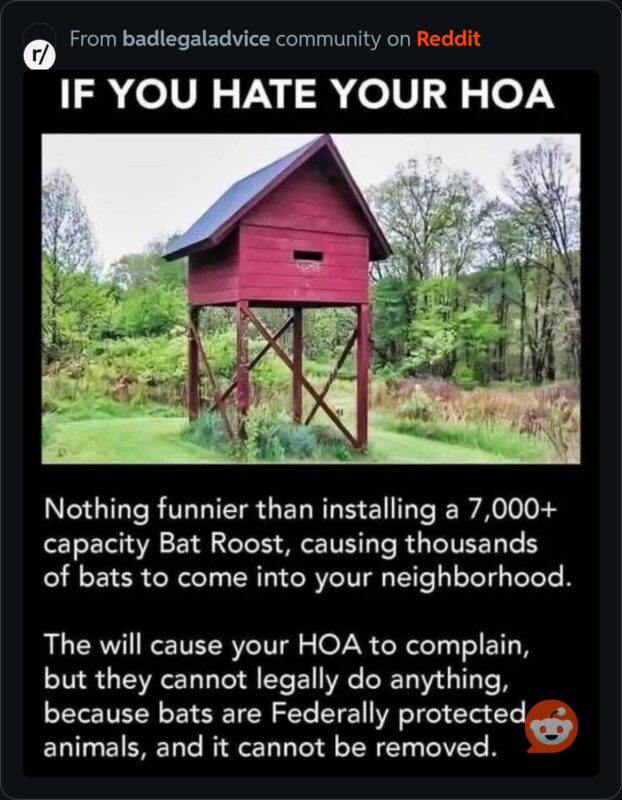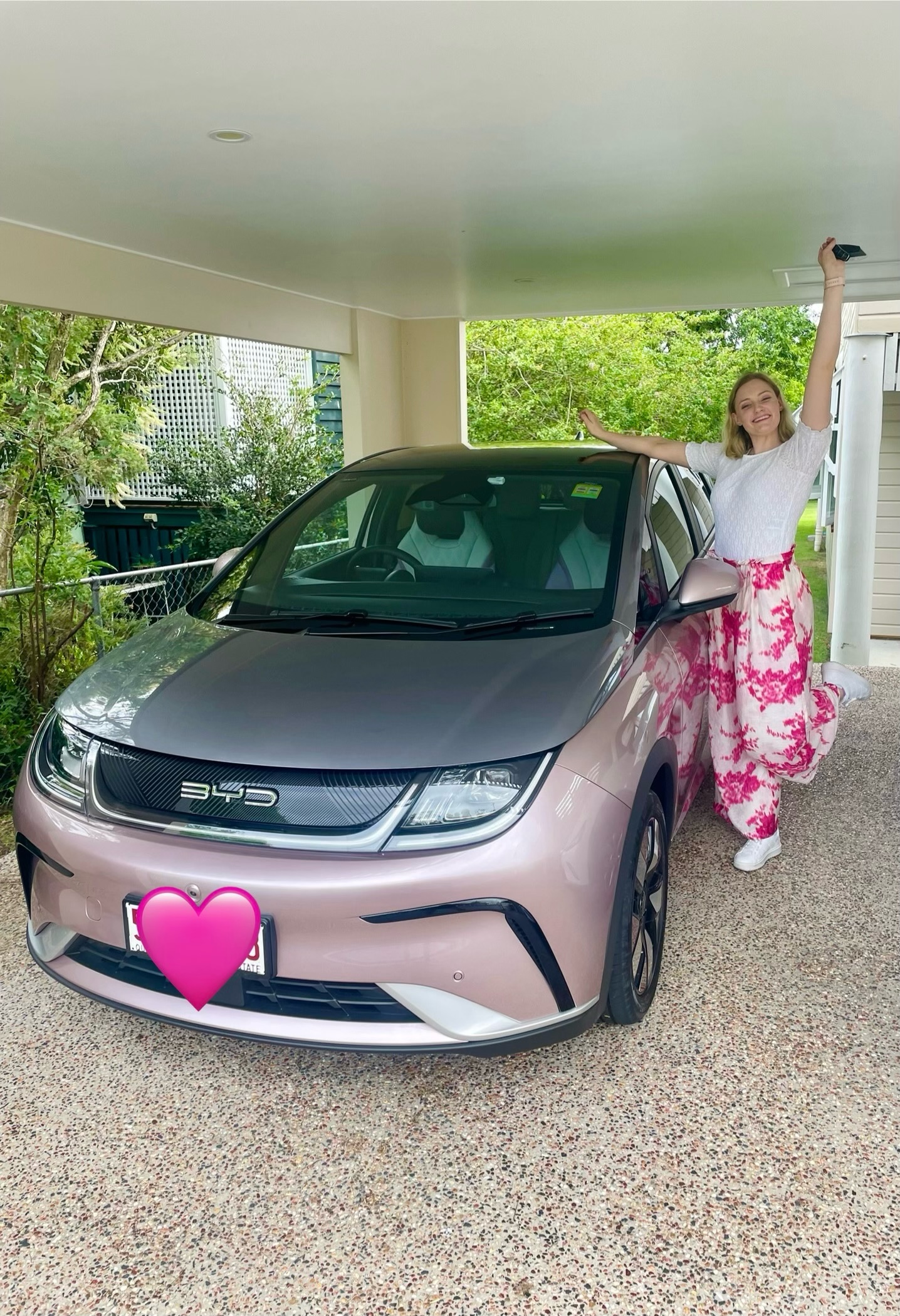Sign up for daily news updates from CleanTechnica on email. Or follow us on Google News!
Almost nobody likes HOAs. Sure, there are HOAs out there that play fair, act reasonably, and don’t contribute to the bad reputation that HOAs have earned for decades. However, unreasonable restrictions on everything imaginable, a lack of mercy for people struggling financially or with their health, and even criminal activity have plagued enough HOAs to make people wary of them. Everyone from amateur radio operators to people who want to grow gardens have tangled with HOAs in court and in legislatures, including Congress.
Frustrated with difficulty fighting the HOA lobby (funded by fees people can’t refuse to pay), people have found other ways to get back at HOAs (even if this is probably a joke and might not actually be legally correct):
While we’re all aware of HOA drama and people’s disdain for them, one thing I wasn’t aware of was that they’ve been getting in the way of homeowners’ access to clean technology. Solar panels on rooftops are the obvious one, but other things like EV charging equipment in driveways, heat pumps, clotheslines, and even reflective roofing have apparently been under threat if a new Michigan law is any indication.
HB 2058, which was recently passed by the state legislature and signed by the governor, aims to protect clean technology from HOA interference. The law defines an “energy-saving improvement or modification” as including but not limited to:
- Clotheslines
- Air source heat pumps
- Ground source heat pumps
- Insulation
- Rain barrels
- Reflective roofing
- Energy efficient appliances
- Solar water heaters
- Electric vehicle supply equipment
- Energy-efficient windows
- Energy-efficient insulation materials
To protect these technologies, the legislature has declared any HOA policy or agreement that not only prohibits these items, but tries to regulate them in any way, illegal. Approvals, limitations, and required auxiliary changes are all banned for energy-saving technologies. Further, HOAs are required to change their policies (even if they’re now unenforceable) within a year. HOAs that do not comply can be taken to court, lose their case, and end up paying the homeowner’s attorney fees.
The law does give HOAs some leeway on these technologies, though. They can still require a broken solar system to be repaired, among other fairly reasonable things. So, this won’t create eyesores, allow people to cover their entire yards with a solar farm, or do anything else that would actually hurt the property values of neighbors. This really is only targeted at unreasonable regulations of clean technologies and not at the purpose of HOAs themselves.
Personally, I think the HOAs got off easy here, like they always do. Despite being broadly disliked and even hated, governments have been hesitant to clip their wings because property owners technically have the right to enter into restrictions, and that includes HOA membership. However, the free market argument doesn’t hold weight when some metro areas are dominated by HOAs to the point where homebuyers really don’t have a choice as to whether they’ll buy an HOA property or not. Monopolies and cartels may emerge in a free market, but they stifle the freedom of the market and prevent alternatives and competition from emerging.
The law does help the situation by keeping less ethical HOA leadership from using property value and aesthetics as an excuse to spite clean technologies, and that’s something we should applaud here.
Featured image: Aerial photo of a Tesla solar shingle system. Image by Kyle Field and his son.
Have a tip for CleanTechnica? Want to advertise? Want to suggest a guest for our CleanTech Talk podcast? Contact us here.
Latest CleanTechnica.TV Videos
CleanTechnica uses affiliate links. See our policy here.
CleanTechnica’s Comment Policy





